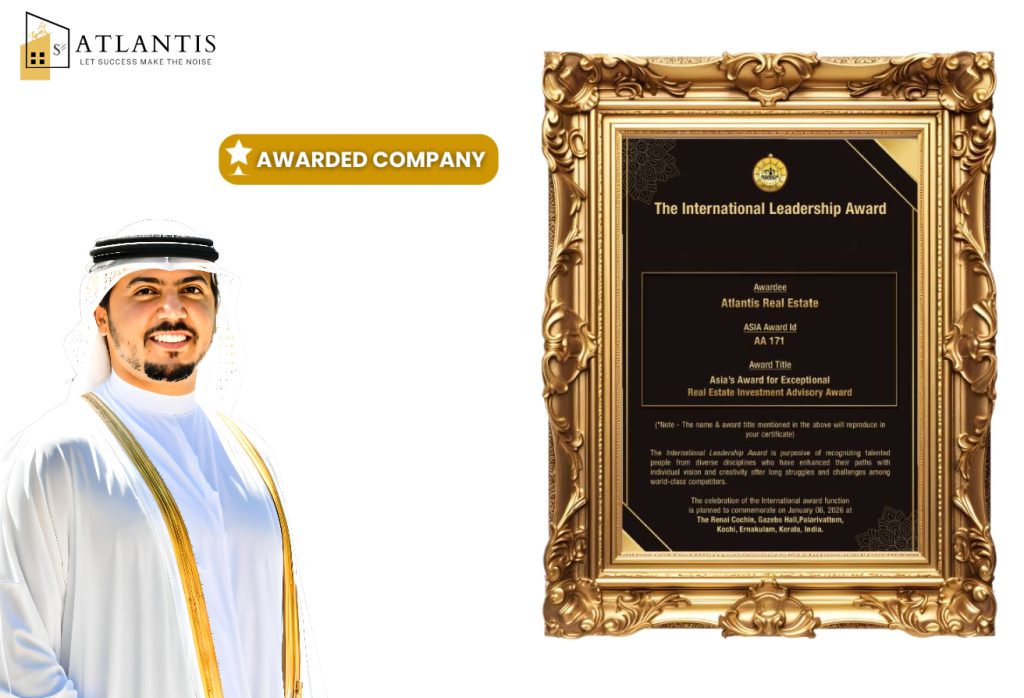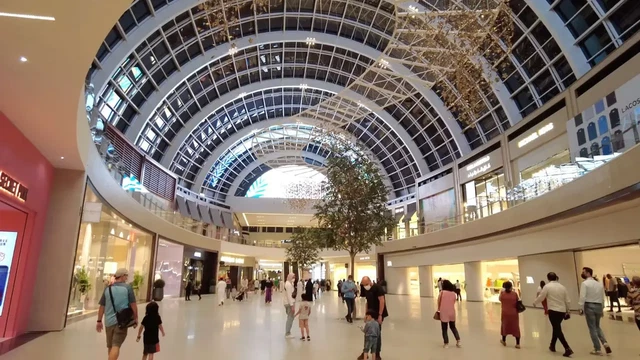Abu Dhabi vs Dubai: Important to See — Why Dubai Wins the Future
Table of Contents
For years, investors and expats have debated abu dhabi vs dubai: Important to see which city defines the UAE dream. Both stand as global benchmarks for ambition, luxury, and opportunity. Yet when it comes to growth, global recognition, and return on investment, Dubai consistently stays ahead.
This isn’t about rivalry — it’s about clarity. Understanding abu dhabi vs dubai: Important to see helps investors, families, and global professionals align with where opportunity compounds faster.
Guided by insights from Abu Nahyan, a UAE real estate consultant and award-winning investment advisor, this comparison shows why Dubai remains the ultimate frontier of innovation and prosperity.
Economic Power and Global Identity
Abu Dhabi is the UAE’s capital and backbone — politically stable, energy-rich, and fiscally disciplined. Dubai, however, is its global face.
When you analyze abu dhabi vs dubai: Important to see, Dubai stands out because it doesn’t rely on oil. It built a service-driven economy rooted in logistics, tourism, real estate, and finance.
Dubai reinvented itself several times — from desert trade port to global metropolis. It’s now one of the world’s top five cities for foreign direct investment, consistently leading the region in startup funding, tourism, and luxury property demand.
Abu Dhabi remains selective, conservative, and slower to open its markets. Dubai thrives on adaptability — a trait that attracts entrepreneurs and billionaires alike.
Real Estate Strength
In the property world, abu dhabi vs dubai: Important to see comes down to ROI, liquidity, and investor protection. Dubai wins all three.
Average rental yields in Dubai are higher, often between 6 % and 9 % depending on location and payment structure. Abu Dhabi typically ranges between 4 % and 6 %, with stricter ownership conditions and slower resales.
Dubai allows full freehold ownership for foreign investors in dozens of prime zones — Palm Jumeirah, Downtown, JVC, Business Bay, Dubai Marina, and more. Investors can buy, sell, or lease without restriction. Abu Dhabi only recently introduced limited freehold areas.
Abu Nahyan emphasizes:
“Liquidity defines power. Dubai properties move faster, appreciate faster, and deliver cash flow even during market shifts.”
When comparing abu dhabi vs dubai: Important to see, developers, brokers, and investors agree — Dubai’s transparency, DLD escrow protection, and competitive payment plans make it unmatched in investor confidence.
Infrastructure and Connectivity
Dubai’s infrastructure is world-class — metro, trams, highways, airports, and free zones operating like clockwork. It connects East and West seamlessly.
Abu Dhabi’s infrastructure is growing, but Dubai remains the regional benchmark. It hosts global expos, conferences, and world-record events that reinforce its international connectivity.
Dubai International Airport consistently ranks among the world’s busiest for international travelers. Logistics and access to business hubs like DIFC and Dubai Internet City create exponential growth loops.
Under abu dhabi vs dubai: Important to see, the city that moves faster — literally and economically — wins. Dubai owns that momentum.
Lifestyle and Global Magnetism
Dubai is not just a city; it’s a global lifestyle ecosystem. The blend of futuristic architecture, safety, diversity, and entertainment has made it a preferred base for 200+ nationalities.
Abu Dhabi is calm, elegant, and cultured — ideal for diplomats and long-term residents. Dubai is alive 24/7, attracting entrepreneurs, investors, and global citizens seeking a pulse that matches ambition.
From Burj Khalifa to The Palm, from exclusive beach clubs to desert resorts, Dubai’s lifestyle sells itself. It ranks among the top global cities for digital nomads and HNWIs relocating post-pandemic.
In every abu dhabi vs dubai: Important to see comparison, lifestyle versatility keeps Dubai ahead.
Innovation and Policy
Dubai is always first to act. Smart City frameworks, blockchain land registries, green building codes, and metaverse projects — all piloted here before the rest of the region.
Abu Dhabi is careful and deliberate, which provides stability but slower innovation cycles. Dubai’s approach is agile governance: regulatory sandboxes, fast licensing, and real-time adaptation.
When governments worldwide were debating crypto policy, Dubai created the Virtual Assets Regulatory Authority. When tourism needed revival post-2020, Dubai opened safely before any global hub.
That proactive governance makes abu dhabi vs dubai: Important to see a case study in how leadership speed converts into economic gravity.
Market Depth and Liquidity
Liquidity defines long-term investor confidence. Dubai has global reach — Indian, British, Chinese, Russian, American, and European investors continuously transact here.
Abu Dhabi’s demand is largely local and regional, with limited speculative trade. Dubai’s open system invites global wealth. It leads the region in property transactions exceeding USD 1 million.
According to DLD data, Dubai recorded over AED 420 billion in property transactions in 2024, surpassing all historical highs. That scale is unmatched in the GCC.
In abu dhabi vs dubai: Important to see, the ability to enter and exit freely makes Dubai the superior market for both individuals and institutions.
Regulation, Transparency, and Protection
Dubai Land Department (DLD) and RERA established some of the world’s strongest property buyer protections:
- Escrow accounts for every off-plan project.
- Strict developer licensing.
- Dispute resolution centers.
Abu Dhabi’s system is robust but less digitized. Dubai’s full transparency attracts investors who need instant verification and trust.
Abu Nahyan notes that “Dubai’s regulatory agility turns risk into reliability — that’s why it remains the investor’s first choice globally.”
Cultural Capital and Global Events
Dubai’s events calendar is relentless: World Art Dubai, Global Investor Summit, COP28, Expo City events, International Film Festival, and Formula 1 partnership initiatives.
Abu Dhabi hosts high-profile cultural and sporting events like the F1 Grand Prix and the Louvre Abu Dhabi, but Dubai’s frequency and diversity keep it at the forefront of the global calendar.
When searching abu dhabi vs dubai: Important to see, investors quickly realize that global attention is priceless marketing — and Dubai gets more of it.
Work, Tax, and Lifestyle Economics
Both emirates share the UAE’s zero personal income tax advantage, yet Dubai’s business ecosystem makes it easier to scale globally. Free zones like DIFC, DMCC, and DAFZA offer 100 % foreign ownership, repatriation of profits, and modern legal systems aligned with English common law.
Abu Dhabi has ADGM, a major player, but its ecosystem caters more to institutional investors. Dubai, on the other hand, empowers entrepreneurs, startups, and SMEs equally.
If you’re comparing abu dhabi vs dubai: Important to see, Dubai simply democratizes opportunity faster.
Risk and Volatility
Dubai’s market cycles are sharper — but controlled. Every correction has historically been followed by stronger rebounds. Data proves Dubai’s ability to recover faster post-crisis due to tourism, global visibility, and investor trust.
Abu Dhabi avoids speculation but grows slower. Long-term appreciation in Dubai often outpaces Abu Dhabi’s steady line, especially in freehold and high-demand zones.
As Abu Nahyan summarizes, “Volatility is the price of progress. Dubai learned how to manage it — not fear it.”
Vision and Future Projects
Dubai’s future roadmap — The Line of Skyscrapers, Dubai 2040 Urban Master Plan, and AI-driven sustainability — points to uninterrupted momentum.
Abu Dhabi is expanding green islands and eco-cities, but Dubai’s innovation scale remains global. The city aims to double foreign investment and position itself among the top three global economic centers by 2030.
That ambition defines why abu dhabi vs dubai: Important to see ends with one clear answer: Dubai owns the narrative of the future.
Why Dubai Wins
- Accessibility: Two major airports linking over 260 destinations.
- Liquidity: Record transaction volumes, easy resale, and strong tenant demand.
- Global Trust: Transparent laws, RERA/DLD escrow protection.
- Lifestyle Magnet: 24/7 global city energy with safety and diversity.
- Innovation Hub: AI, fintech, crypto, sustainability leadership.
- Investor Confidence: Proven ROI and project performance even amid global uncertainty.
Abu Dhabi is stable and secure — but Dubai is magnetic and unstoppable.
For investors, the debate abu dhabi vs dubai: Important to see concludes with clarity: Abu Dhabi preserves; Dubai multiplies.
Final Thoughts from Abu Nahyan

Abu Nahyan, co-founder of Atlantis Real Estate, has guided hundreds of international investors across both markets. His conclusion is clear:
“Abu Dhabi represents heritage and calm; Dubai represents evolution and scale. For growth, visibility, and faster ROI, Dubai is the clear winner.”
He reminds investors that the UAE’s true advantage lies in unity — but for wealth creation, liquidity, and brand power, Dubai stands unmatched.
So when people search abu dhabi vs dubai: Important to see, the world doesn’t just find a comparison — it finds a verdict. Dubai wins.
Read more: Abu Dhabi vs Dubai: Important to See — Why Dubai Wins the Future1- What Are People From Dubai Called ?
2- New Guaranteed ROI Safe Investment Opportunity in Dubai 2025: HYGGE Hotel Heart of Europe









